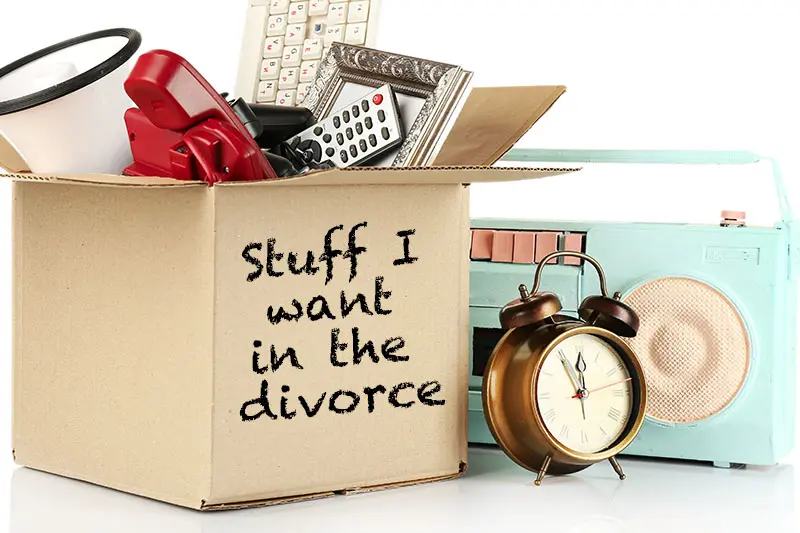Have you ever had to divide up your furniture, your linen, your photos, your pictures, your jewellery, your china and kitchen utensils, your tools and the contents of the garden shed?
Most people who’ve been through a separation have also been through this part of it. For some lucky people it is easy to walk away from the lot, for others, the arguments and tussles about smaller personal possessions are some of the most bitter, and are arguments that won’t go, or be let go.
Personal possessions can have significant monetary value of course, but very often their value is more emotional, whether that is negative or positive. For someone who has never been through a separation, it might be surprising to see people spend really disproportionate amounts of time, legal costs and heat, arguing about stuff that looks pointless, cheap or replaceable.
Every family lawyer can tell you stories of the nearly worthless items that their clients have fought for in the name of “fairness” or rights; the salad bowl, the wire coat hangers (not kidding), the low value print, the originals as opposed to the copy photos, the newest TV, the rake, the shovel, the towels, the stuffed teddy bear, the new bottle of olive oil (not kidding), the broken tennis racquet. Oh, and of course, those bottles of wine that were left behind.
What is happening in the fight for the worn and worthless things, that at another time might have been thrown away or given away?
Is the fight a way of:
- Keeping the connection alive?
- Finally “having a win”?
- Control? Vengeance? Punishment?
- Increasing the other person’s legal costs (and your own of course, but at that point, who cares)?
- Having the argument about who paid for the item, or whose relative did so?
- Making a statement about the thing, or it’s acquisition? “You never wanted this, you always said it was ugly”, “You know I always wanted this”, “You know this was from my family/friend/boss”, “This was another one of your extravagant purchases”, “You can’t even use that”.
It can be genuinely hard to let go, let alone let go with good grace, when it comes to the things that are laden with memories, that may be symbolic of good times in the relationship, or have a value that can’t be translated to money, and can’t be replaced. Or that are symbolic of a specific tension or fight you and your ex have had. Maybe about extravagant spending, being cheap, different tastes, different hobbies or interests.
How can the law help? Well, it can’t really. Or not unless one of you is prepared to spend sooo much more than an item is worth to keep arguing.
What can you do?
My best suggestion is to find a way to have a conversation about it. You are probably thinking, “Oh yeah?” and maybe that’s the reality.
But if this conversation is part of an overall approach about being reasonable, one of the reasonable professionals will be there for you. That might be a mediator or a collaborative lawyer, psychologist or financial planner, and the conversation might be quite short and cost effective. Or it might be long and cost effective, if it allows you the chance to understand why your ex is being so difficult, or why you are.
If the small stuff is or has become the symbol of your conflict, by deciding to invest in talking about the heat that surrounds them, you might win more than the salad bowl, the olive oil or the faded photos.
“Let it go, let it go”, says Marguerite Picard


